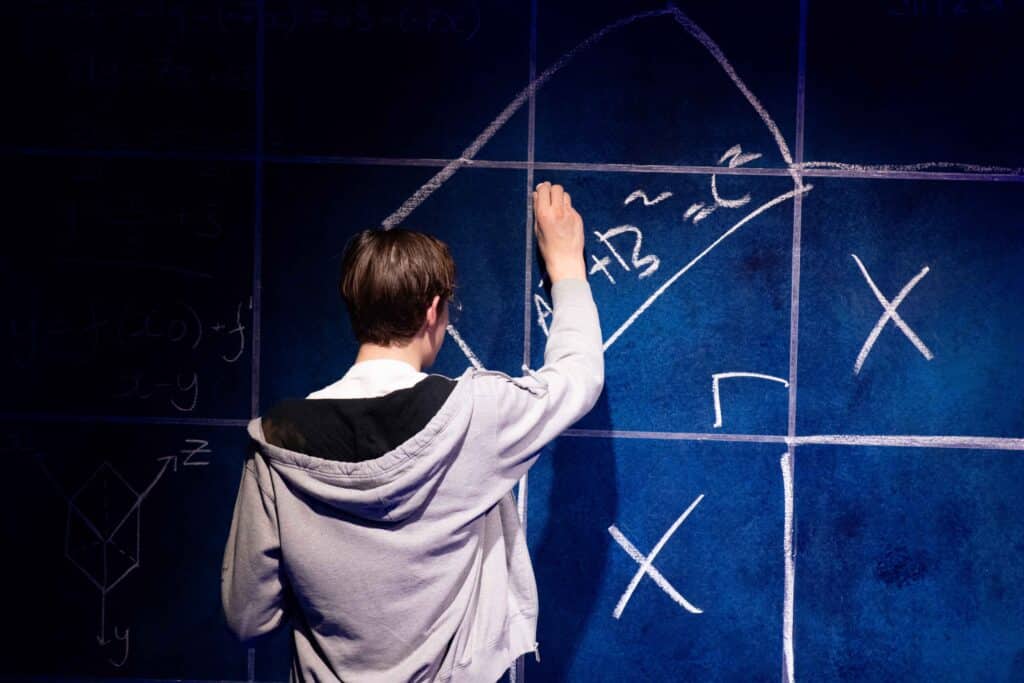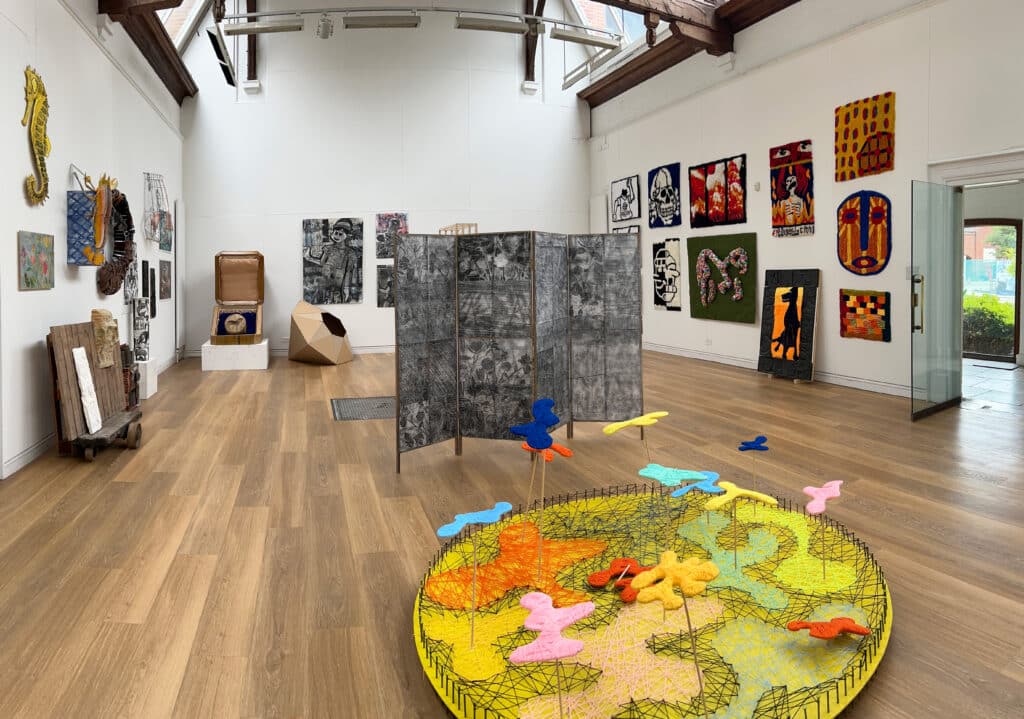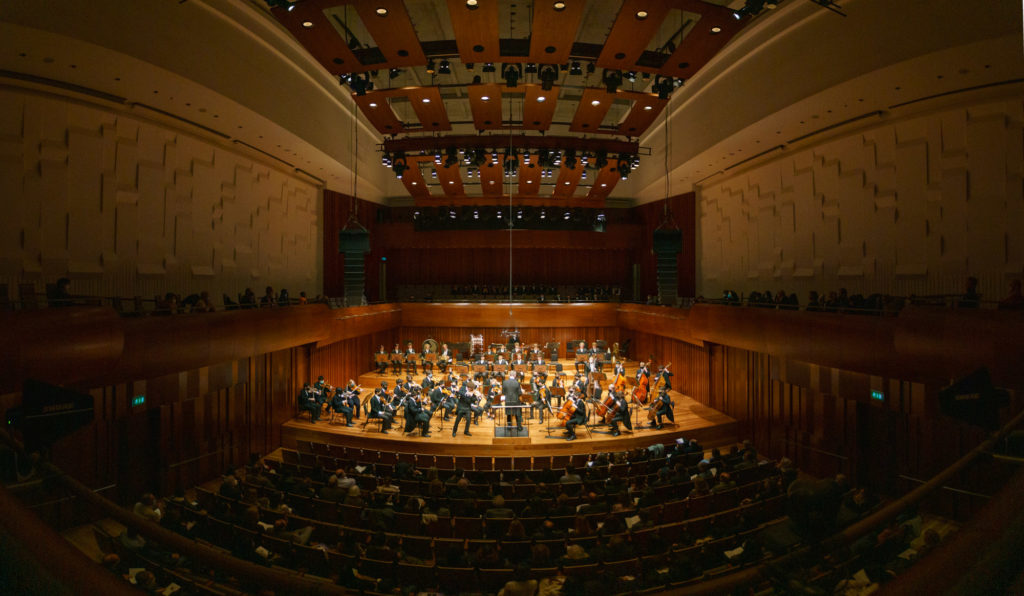We aim to facilitate the learning experience of boys in all aspects of current theatre arts – encouraging them to discover who they are, and who they could be, as artists and practitioners. The most fruitful path to this is via active participation: by trying things out themselves, by making creative mistakes, and through the art of collaboration.
What Eton specifically gave me was an expanded opportunity to watch theatre, to practise theatre, to treat theatre as something that matters.
Dominic Maxwell, Old Etonian and theatre critic
Opportunities
There are around 20 theatrical productions staged in a typical year, ranging from full scale musicals and Jacobean classics in the largest venue, to productions of the latest contemporary works directed and produced by the boys themselves.
Backstage
Boys are encouraged to get involved with all the technical aspects of theatre production: the design, rigging and operation of both lighting and sound, as well as operating the stage management and running the costume and make-up department.
State of the Art Facilities
There are three different theatre spaces, staffed by professional theatre practitioners. This includes a resident designer as well as a Theatre Director and Filmmaker-in-Residence, who are appointed every year to bring the most up-to-date perspectives into the department.
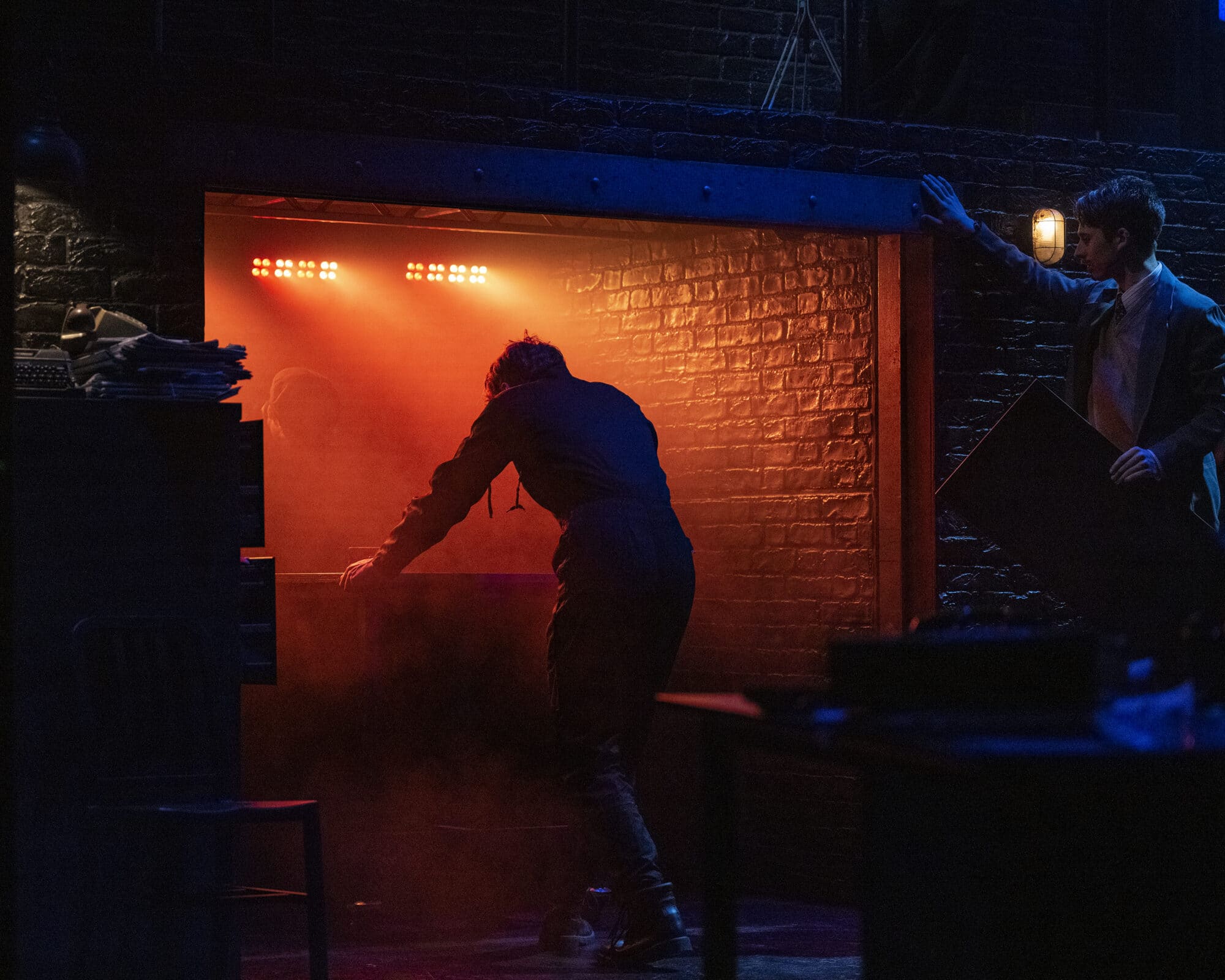
members of the backstage team.
There has been a steady stream of actors, playwrights, directors and technicians from the School who have gone on to make significant contributions to the artistic life of the country, from Oscar winners to top stage designers and comedians.
The co-curriculum at Eton is treated pretty much at a professional level, with the kind of guidance and opportunities you could expect from nowhere else. I was pushed beyond what I could ever have dreamed of doing!
Charlie, school play actor
Production Gallery
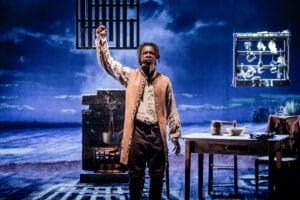
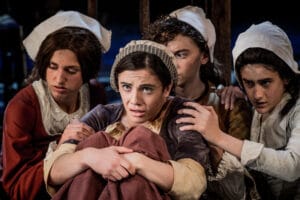
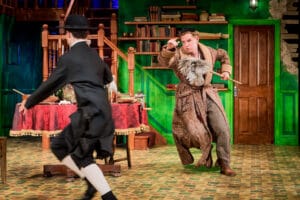
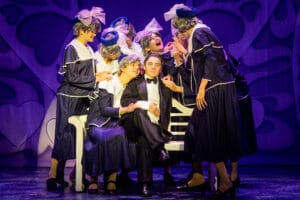
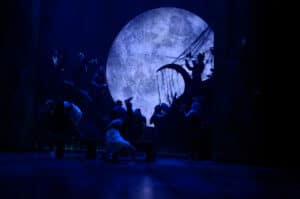
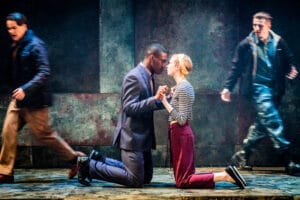
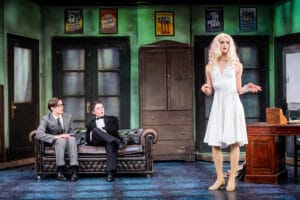
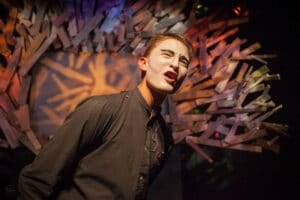
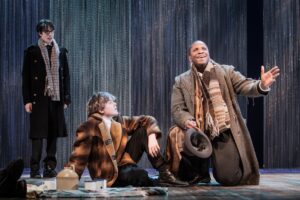
School Plays
There are two School plays a year in the Farrer Theatre, which draw on acting talent throughout the College regardless of age. The third Summer play is open to the lower two years only in order to give opportunity in particular to the younger boys.
We choose plays that are ’significant’ from an artistic point of view, that provide opportunities for as many boys as possible, and are of sufficient depth and difficulty to challenge the best and brightest talent in the School.
House Plays / In-House Plays
Between 10 and 12 Houses may produce a play in a typical year. Productions are split between the Farrer Theatre and the Caccia Studio, with some smaller productions staged within the Houses themselves. House plays tend to be inclusive — large casts, large backstage crews — so as to involve as many of the boys in the House as possible in order to give them the full theatrical experience. For this reason, they are usually directed by a member of the teaching staff or on occasion a freelance director.
Independent Plays
Every year there are two independent play slots which are produced, directed, cast and managed solely by boys. The texts for these productions are often drawn from contemporary and original voices and are a chance for boys to develop their conceptual skills and to practise leading a team.
House Play Competition
This takes place every year in the Lent Half (term). Houses enter a piece of theatre lasting not more than 20 minutes. This can be a complete play or an excerpt, based around a given theme. All directorial, production, and performance work is done exclusively by boys from the House. The final round of the competition is judged by an outside adjudicator, typically a professional actor or director, and a trophy is awarded.
School Play Festival
Every few years there is a festival of new writing and all boys and staff are encouraged to submit plays. All the theatres, as well as one-off venues, are used, and the whole School celebrates theatre over an intense week. In the 2016 festival, there were eight original plays, all directed by boys, including a radio play written by a boy in his first year. There is also a play writing workshop established for emerging writers to help them bring their ideas to the stage.
Theatre Spaces and Staffing
The Farrer Theatre seats 401 people in a flexible auditorium and is staffed by five full time theatre professionals led by an artistic director. The theatre is fully equipped to a high standard, including a full counterweight flying system with truss and motors as well as a large orchestra pit. There is a comprehensive stock of lanterns, state of the art lighting control system and excellent 7.1 surround sound capabilities supported by a digital sound desk. Backstage there is a scenic workshop and set storage, a well-stocked wardrobe, a make-up studio, green room and spacious dressing rooms. The Caccia Studio and Empty Space Theatre offer flexible, fully equipped alternative theatre spaces seating 100 and 60 people respectively. Other venues around the College are often turned into temporary theatre spaces.
Film and Radio
Film is arguably the dominant art form of the last century and it is key that boys explore this medium. The film unit is led by the Filmmaker-In-Residence and is there to teach the basics of production, sound and cinematography, and to supply equipment so that boys can experiment with making their own films.
Stage Crew
The stage crew is led by six boys designated as ‘Keepers’ – they are responsible for all the stage management, lighting, sound and costume in the Farrer Theatre, Caccia Studio and Empty Space Theatre. This means they operate shows, design and plan House and independent productions, help with the training of younger boys and manage the provision of technical and backstage crews across the theatres. The hands-on approach in the theatre means that boys quickly develop an understanding of the fundamentals and can have fun at the same time. There are regular outings and social events for the crew and countless life-long friendships have been formed backstage at the Farrer.
Curricular Drama
Drama is also available on the curriculum throughout the School. There is an introductory course for all boys in their first year and then boys can choose drama GCSE, which runs through their second and third years. Theatre studies is also increasingly popular at A Level and led by the Head of Curricular Drama, Rebecca Farley.

